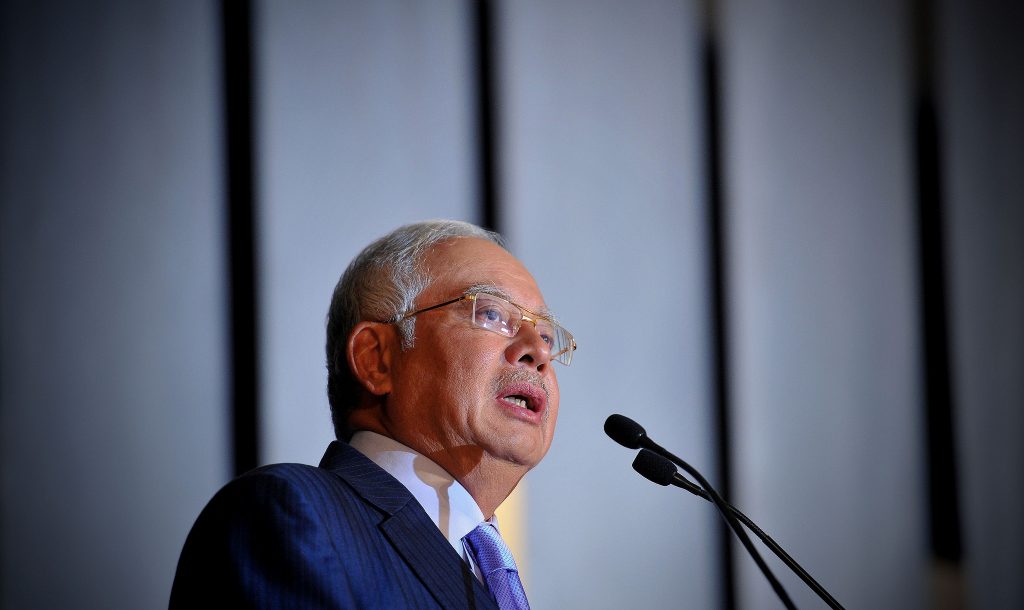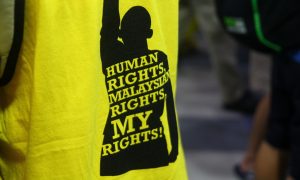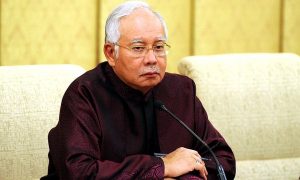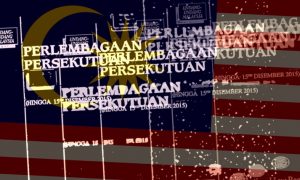When compiling the first volume of Malaysian Politics and People: Misplaced Democracy, we brought together a group of Malaysian specialists to reflect on the aftermath of the 13th General Election. We argued that Malaysia was moving towards a change whose nature was yet to be determined. Three years later this has been confirmed, but the changes are by no means linear. The opposition has become emboldened while new forms of resistance have emerged in arts and activism—but they have also become more fractious. The government has been plagued by financial crises and scandals but has been able to maintain its hold on power, drawing PAS outside of the opposition coalition.
In our latest volume, we once again bring together a collection of international and local researchers to take stock of the nature of Malaysian politics and society the lead up to the much anticipated 14th General Election. Reflecting on the changes of the last three years and firmly rooting our analysis in the reality of Malaysia as a semi-democratic state, we once again find that change will remain a certainty but that the direction of this change has become all the more acute and urgent in the face of political scandal and state authoritarianism. Could Malaysia fall deeper into authoritarian tendencies, as many worry with the passage of the National Security Council Bill 2015 and the detention of opposition figures and restrictions on their travel? Will the Prime Minister be willing to relinquish power in the event of an opposition electoral victory? Or will change emerge more incrementally? Could an opposition party take power with a radically reformist agenda to democratise Malaysian society or will the elitist tendencies in Malaysian politics continue? Finally, what other forces—be they in the field of foreign policy, the economy, minority & LGBTQI rights, the environment, education or migration—will shape the future of Malaysia’s politics and its people?
A desire to answer these pressing questions led us to publish Illusions of Democracy: Malaysian Politics and People Volume II. We hope that it contains the beginnings of an answer to these questions, and serves to promote critical interrogations of Malaysian politics and society from a variety of fields and areas of study.
Pieces by Delphine Alles & Louise Perrodin, James Chin and Tricia Yeoh, build upon and bring up to date their analyses in the first volume regarding Malaysian foreign policy, non-Malay bumiputera and Malaysia’s oil and gas sector respectively. Divided into four sections, this latest volume covers the manipulation of ethno-politics, the role of Malaysia in the international system, the place of ‘Others’, from LGBTQI to Shia minorities and finally the mismanagement of Malaysia’s resources, both financial and natural. In doing so, they develop important new areas of research from Lawrence Ross’s study of silat martial arts to Amanda Whiting’s detailed study of emergency legislation, Dominik M. Müller’s study of anti-Shia hatred in Malaysia and Alessandro Uras’s study of Malaysia’s South China Sea dilemma. Other pieces reflect more contemporary concerns—Kerstin Steiner provides an important account the of 1MDB scandal at the intersection of economics, politics and law in Malaysia, whilst Aida Arosoaie and Mohamed Nawab Osman explore the impact of ISIS discourse on Malay-Muslim society in an analysis rooted in the long-term trajectory of Islamisation. Azmil Tayeb and Yew Wei Lit provide an up-to-date account of the developing environmental movement in Malaysia while in another chapter Azmil Tayeb analyses the dynamics of federalism in Malaysia in the case of Islamic education in Kelantan. Finally, other chapters return to well-covered ground in Malaysian studies, bringing new and fresh perspectives. Gerhard Hoffstaedter and Louise Perrodin’s piece on refugees in Malaysia, through a case study of Chin and Rohingya refugees, exposes the connections between Malaysia’s ethno-centric political and social life and the lives and organisation of refugee groups. Angela M. Kuga Thas takes up the study of LGBTQI minorities in Malaysia alongside the ‘Islamic State’ issue and the attempts to unite Malay Muslims to maintain UMNO’s electoral dominance, while Mohd Nazim Ganti Shaari analyses Malaysian constitutional identity formed by the constitutional role of the Malay rulers, Islam and Malay elements.
Put together, these chapters grapple with what it means to study a country caught between democracy and authoritarianism and what it means to study politics outside of liberal democratic norms. They contribute towards the deconstruction of Malaysia’s political structure and its political, economic, social and legal system. They challenge the illusions which continue to sustain a semi-authoritarian democratic system.
Finally, the extraordinary participation of the political cartoonist Zunar in our discussion and reflection is, to us, a way to actively include artistic activism at the heart of intellectual and academic debate. Zunar’s work, which offers a passionate yet sharp account of the current situation, is a perfect symbiosis between a reasoned analysis of contemporary Malaysian politics and the more intimate voice of perceived reality. It is all the more precious as an expression of an authentic Malaysian voice which will continue to be heard through time and across frontiers.
. . . . . . . . . . . .
 Facebook
Facebook  Twitter
Twitter  Soundcloud
Soundcloud  Youtube
Youtube  Rss
Rss 


